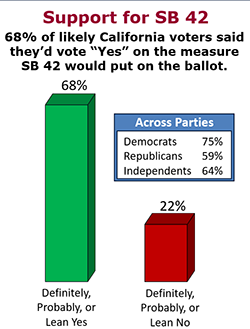More Transparency
The Republican primary in South Carolina is an example of the negative effect super PACs can have on political campaigns, since they spend large sums of money on behalf of a candidate without having to reveal the source of the funds. A controversial 2010 U.S. Supreme Court decision opened the door for the creation of these groups, which can spend unlimited amounts, as long as there is no coordination or ties with their candidate's campaign. Therefore, two super PACs supporting candidates Mitt Romney and Newt Gingrich have already spent almost $4 million, mainly to attack each other-an amount higher than what both candidates combined have officially spent in this Southern state. As Californians, we are very familiar with campaigns, for example, for ballot initiatives where it is not clear at first sight who is backing the issue and paying for the ads. State law is more demanding on transparency, but that is still not enough. The California DISCLOSE Act, AB 1148, introduced by Assemblywoman Julia Brownley, is a step forward in bringing transparency to the process. The bill, which is in the Assembly Appropriations Committee, will require the names and logos of the three top donors to appear on all ads, even those on TV. We hope lawmakers support voters' right to information by backing AB 1148, and that they do not give in to other interests, even those that supported them in the past. The bill will greatly help voters understand the interests behind a candidate or ballot initiative and reach their own conclusions on Election Day. The U.S. Supreme Court ruled a long time ago that giving money to a cause or candidate is an act of freedom of expression. If now it is practically impossible to decrease the amount of money spent on political causes, we should at least clearly know where it comes from. See the article on La Opinion website (In accordance with Title 17 U.S.C. Section 107, this material is distributed without profit to those who have expressed a prior interest in receiving the included information for research and educational purposes.) |



